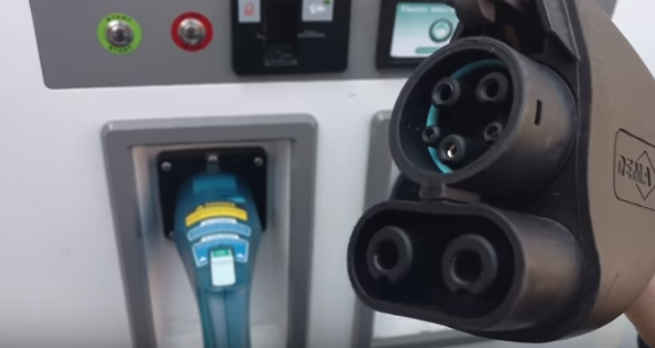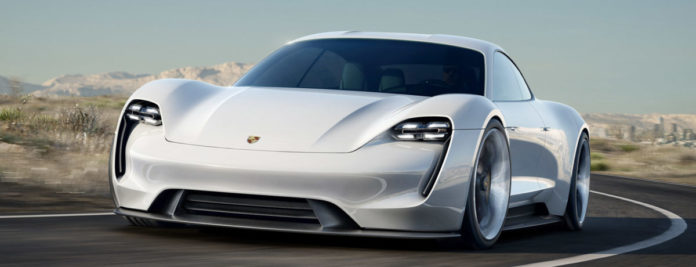Image Source: Porsche.com
EV is getting much attention these days. Many companies have already announced big presences in the EV (electric vehicle) market, revealing new products and technologies. This month, Porsche and BMW have revealed to the world their latest offerings.

The two German companies have shown off new technologies in the market that could beef up electric vehicles, providing much faster EV charging methods. Both companies have come out with their great ideas on how to get most of the power charge in just a few minutes. However, these ideas often come at high costs, mostly in the form of additional infrastructures and new vehicles.
The rivalry between Porsche and BMW
The charging speed or time it takes to charge an electric vehicle is one of the primary reasons for slow EV adoption. Current electric vehicles can only charge at a fraction of the charging speed demoed by the two German companies.
Both Porsche and BMW are part of the elite FastCharge Consortium, a group of automakers that have banded together to seek new ways of fast-charging vehicles and super-fast electric car power chargers, as well as the infrastructures that will support them.
View this post on InstagramA post shared by Porsche Electric (@porscheelectric) on
The two companies have been engaged in some sort of “arms race” or tech rivalry. Both automakers have introduced and showcased similar systems relying on a 450kW charger. But it was the Porsche that broke the month-long power stalemate between the two rivals, thanks to Porsche’s innovative cooling rig that helped keep its 90kWh battery stable and efficient.
Porsche, the German-based automobile manufacturer specializing in building high-performance sports cars, has managed to push the power even higher, setting a record charging of 400kW. The power technology allows the Porsche cars to hit even faster, a whopping 100 km (62 miles) in just 3 minutes.
View this post on InstagramA post shared by BMW i. Born Electric. (@bmwi) on
In contrast, the experimental BMW i3 took it at just 350 kW, making it much slower when compared with its German rival. But BMW is a known competitor and will not back down without a good fight. So expect some serious BMW power technology in the near future.
The other players and competition
But Porsche and BMW are not the only companies making a huge dive in the hotly lucrative power charging market. US-based Tesla is also on the hunt for the next big thing in the power charging technology. Tesla currently runs one of the largest lithium-ion battery factories in the world, the iconic Tesla Gigafactory. The American company has already announced plans to halve the charging time of its current power chargers.
And then there’s Audi, which is also known for building high-performance cars. Compared with Tesla’s current output (120kW), Audi’s e-Tron vehicles offered much higher output, 150kW.
In addition to automakers, Silicon Valley players like Apple are also joining the EV bandwagon. The Cupertino-based company is known for producing some intriguing patents as well as Earth-shaking technologies. One of these intriguing patents is a solution for an energy-efficient electric vehicle.
Overall, the power charging arms race is expected to get even bigger and bloodier in the days to come as more companies announced plans to enter the fast-growing power charging space. It’s a good sign for EV enthusiasts.
Source: ExtremeTech
